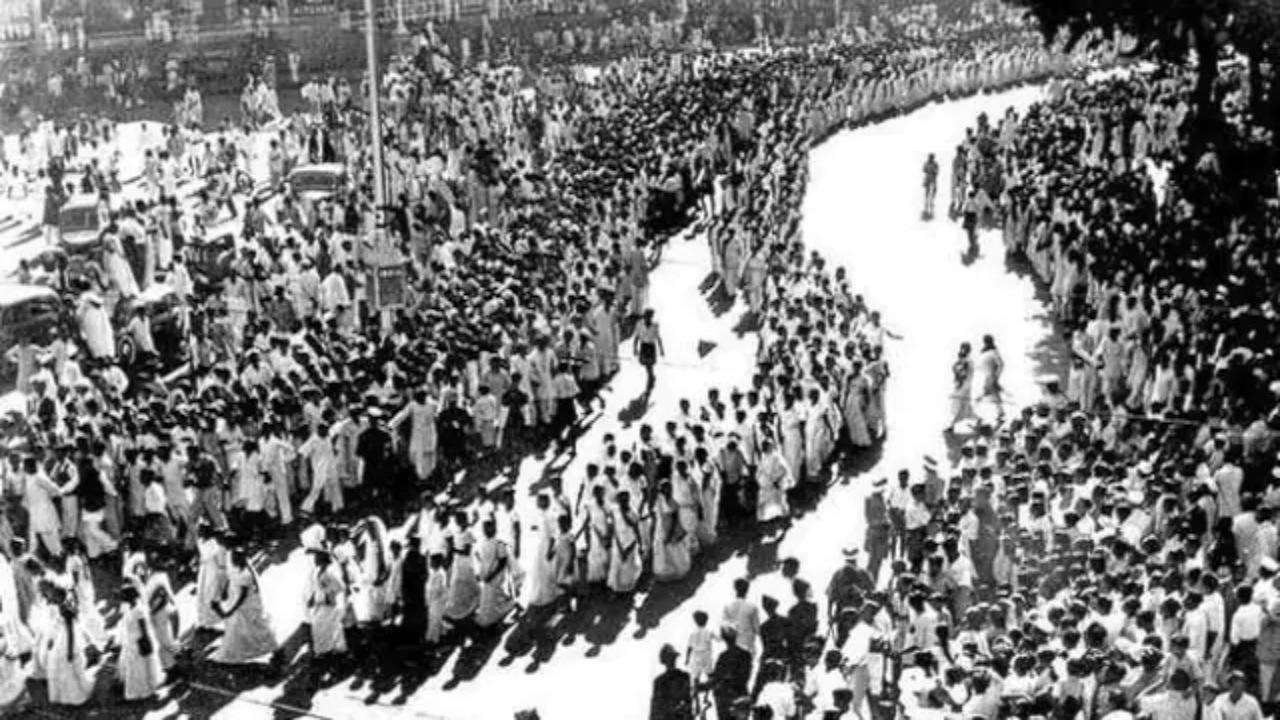August 9 marks an enduring tribute to the historic Quit India Movement, also known as "August Kranti Diwas," a remarkable chapter in India's journey to liberation. Initiated by Mahatma Gandhi in 1942 during the fervent struggle for independence against British colonial dominion, this day holds a significant place in India's history.

Photo/Internet
August 9 marks an enduring tribute to the historic Quit India Movement, also known as "August Kranti Diwas," a remarkable chapter in India's journey to liberation. Initiated by Mahatma Gandhi in 1942 during the fervent struggle for independence against British colonial dominion, this day holds a significant place in India's history.
ADVERTISEMENT
Launched amid the backdrop of World War II, the Quit India Movement aimed to unite and invigorate the Indian populace to hasten the exit of British rule from the subcontinent. With the resounding call of "Do or Die," Mahatma Gandhi's unwavering resolve reverberated through the nation, rallying millions to participate in acts of civil disobedience, protests, and strikes.
The movement's impact was profound as it transcended regional, cultural, and social divides, uniting Indians under a collective vision of freedom. Despite severe suppression by the British authorities, the movement's fervor endured. This was augmented by the weakened post-war position of the British government and growing global pressure, factors instrumental in their decision to finally grant India independence in 1947.
On August 8, 1942, Mahatma Gandhi delivered his iconic "Do or Die" speech, urging Indians to rise against British oppression through nonviolent civil disobedience. The movement officially commenced the following day, on August 9, with nationwide demonstrations, strikes, and protests.
Central to the movement was the unwavering aim of exerting immense pressure on the British colonial administration to relinquish control. Despite the British resorting to arrests and violent crackdowns, millions of Indians continued to participate.
The Quit India Movement was a pivotal juncture, uniting the Indian National Congress and other political parties in their call for sovereignty. The combined impact of this movement and the global events of World War II compelled the British to reevaluate their stance, eventually leading to the grandeur of Indian independence in 1947.
The legacy of the Quit India Movement resonates across generations, illuminating the potency of unity, nonviolent resistance, and the quest for justice and self-determination. It stands as a testament to the perseverance of the Indian people who championed their rights, laying the foundation for a democratic nation.
Every year on Quit India Movement Day, diverse events, ceremonies, and discussions commemorate the sacrifices of freedom fighters and their contributions to India's historical narrative. It's a day to contemplate past struggles and reaffirm the significance of democracy, liberty, and the principles of equity and harmony.
While the Quit India Movement garners widespread respect for its pivotal role in India's pursuit of freedom, like any historical event, it does face criticism and varying interpretations:
Timing and World War II: Some argue that the movement's timing during World War II might have been detrimental to the British war effort against the Axis powers.
Violence and Repression: While Gandhi advocated nonviolence, violence occurred during the movement, leading to loss of life and property.
Lack of Clarity: Some contend that the movement's objectives weren't clear to all participants, leading to confusion.
Economic Disruption: Strikes and protests caused economic disruption, possibly affecting the vulnerable.
Leadership and Unity: Though aimed at unity, internal disagreements within the Indian National Congress could have impacted the movement's effectiveness.
Impact on Society: Disruptions may have negatively affected daily life and essential services, causing frustration.
In reflection, Quit India Movement Day is a time to honor sacrifices, learn from history's complexities, and renew the commitment to ideals that ushered in a free India.
 Subscribe today by clicking the link and stay updated with the latest news!" Click here!
Subscribe today by clicking the link and stay updated with the latest news!" Click here!







